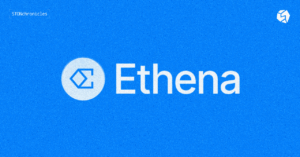
Decentralized Exchanges (DEX) have emerged as a revolutionary approach to trading digital assets. Unlike traditional centralized platforms, DEX represents a peer-to-peer marketplace powered by blockchain smart contracts where users can trade directly without intermediaries.
Before exploring the differences between Decentralized and Centralized Exchanges, it’s crucial to have a solid understanding of trading fundamentals — grasping how the market operates, comprehending concepts like liquidity, and knowing the roles of market makers and market takers.
Basic Concepts of Trading Market: Liquidity, Market-Makers and Market Takers
Liquidity is the heartbeat of any financial market. Imagine trying to sell a vintage sports car that no one wants. Weeks pass, and potential buyers are nowhere to be found. That’s low liquidity. Conversely, a car that sells within hours demonstrates high market demand and ease of transaction.
A liquid market means assets can be bought and sold quickly at fair prices, with a healthy balance of buyers and sellers creating smooth, efficient exchanges.
For a market to be truly liquid, token exchanges must occur with lightning-quick efficiency. Every transaction requires a delicate matchmaking process: a seller must find a buyer, or a buyer must find a seller. Without this crucial connection, no trade can materialize.
In the trading ecosystem two distinct types of participants drive the economic engine:
- Market Makers: The Initiators. These are the entrepreneurs of the digital trading world. Market makers are the first movers, crafting initial offers to buy or sell tokens. They’re like the merchants who set up their stalls first, displaying their wares and setting the initial price. Often called “market creators,” they provide the foundational liquidity that makes trading possible.
- Market Takers: The Executors. In contrast, market takers are the decisive actors who complete the transaction. They’re the customers who see a compelling offer and immediately act. When a market maker presents an asset, the taker steps in, accepts the offer, and completes the exchange by offering their own asset in return.
Think of this as an economic dance. The market maker extends an invitation by proposing an asset for trade. However, merely creating an offer doesn’t guarantee a successful transaction. A taker must be willing to accept and close the deal.
In essence, market makers supply the market’s lifeblood—liquidity—while market takers consume and utilize it. It’s a symbiotic relationship that keeps the financial ecosystem dynamic and fluid.
Liquidity Providers: The Financial Ecosystem’s Backbone
Liquidity providers contribute their assets to exchange reserves, creating a pool that enables rapid token exchanges. Think of them as the fuel that keeps the trading engine running smoothly.
Their reward? Transaction fees. The process of liquidity provision, known as “liquidity mining” or “market creation,” is a financial symbiosis. The compensation for liquidity providers isn’t fixed but fluctuates based on two key factors:
- Total available liquidity
- Transaction volume
Market makers are not just participants; they’re the architects of market attractiveness. Recognizing their importance, exchanges often incentivize them with lower transaction fees—a strategic move to ensure platform dynamism.
On the flip side, market takers use these liquidity pools for quick and seamless asset exchanges and pay higher transaction fees for the convenience and efficiency of instant trades.
It’s a delicate balance: providers supply the resources, makers create the initial market conditions, and takers complete the transactions. Each plays a vital role in maintaining a vibrant, responsive digital marketplace.
This system represents more than just a trading mechanism—it’s a testament to the collaborative nature of decentralized finance, where individual participants collectively create a robust, efficient economic ecosystem.
Wrapping Up
Liquidity emerges as the lifeblood of any market, with market makers and market takers performing a complex economic dance that enables seamless transactions.
By understanding the roles of liquidity providers, market makers, and market takers, we gain insight into the sophisticated dynamics that transform cryptocurrency exchanges from mere platforms into living, breathing financial organisms.





